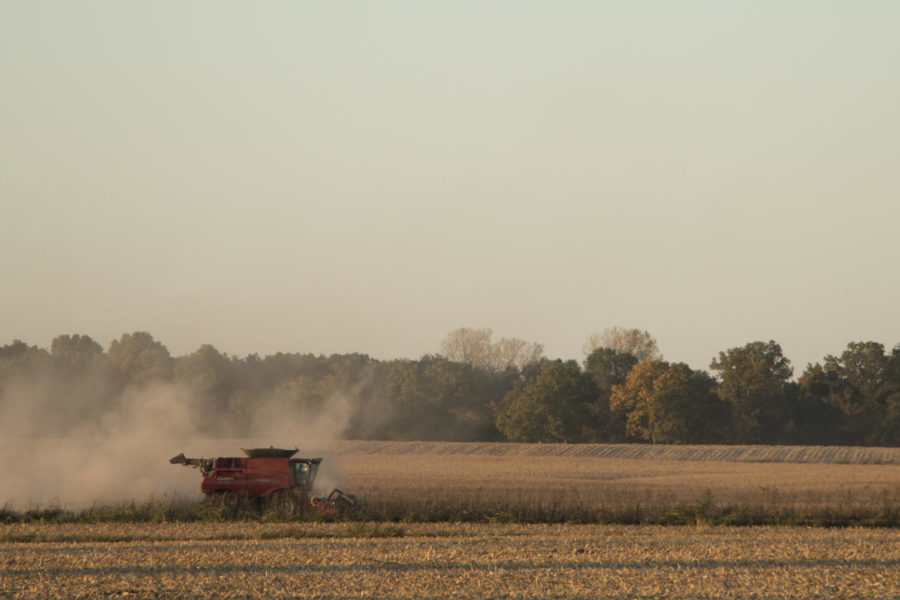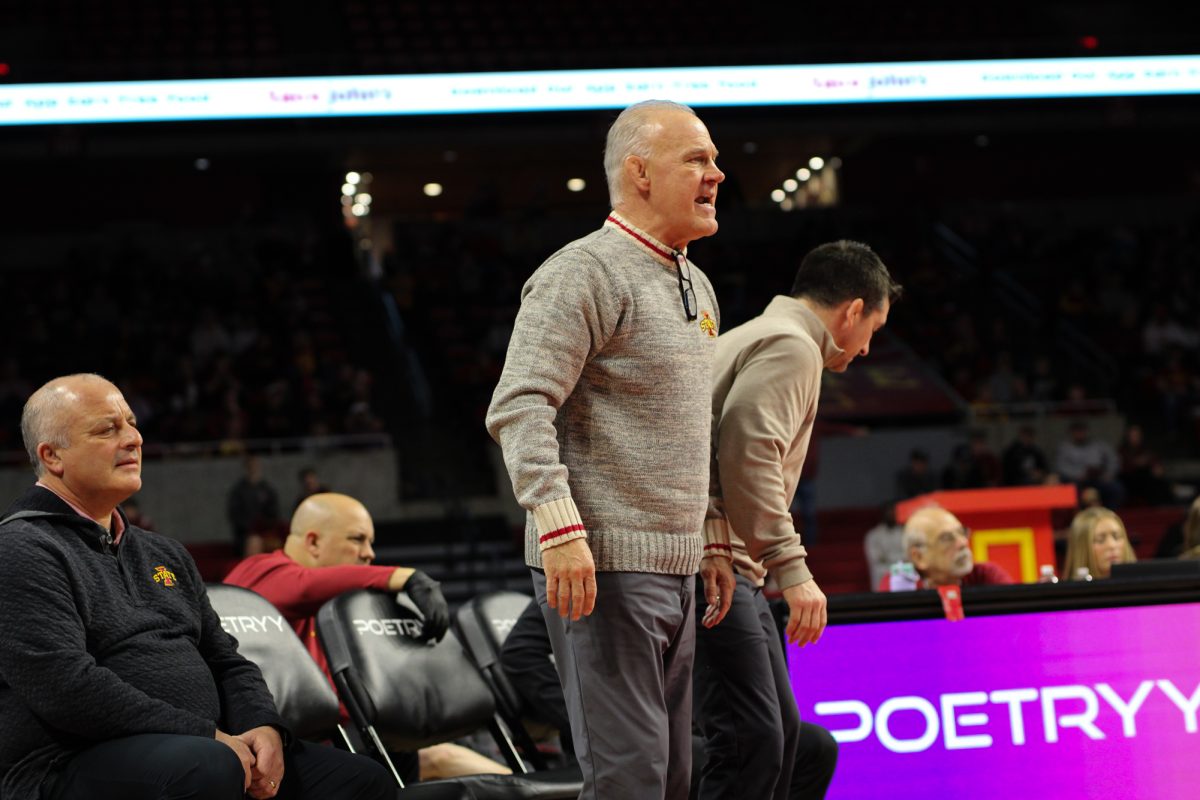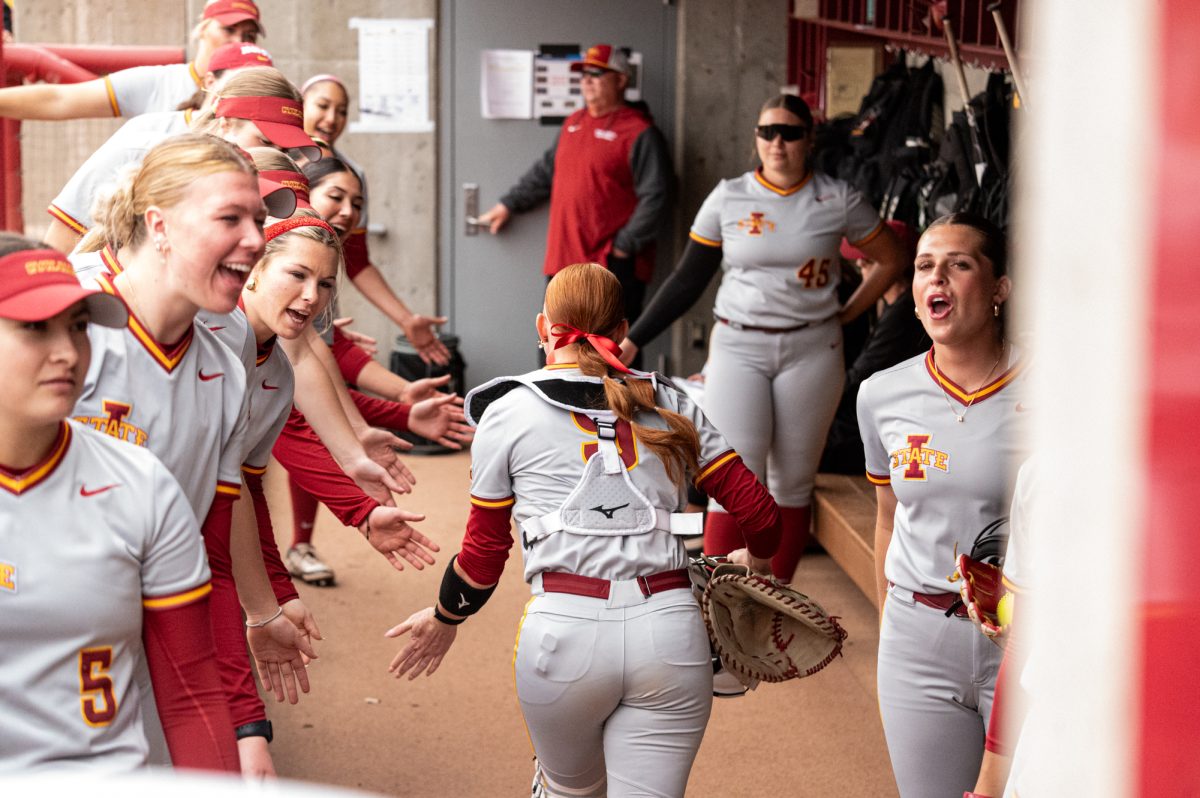Iowa Nutrient Reduction Strategy progressing, but slowly
Emily Blobaum/Iowa State Daily
In 2016, nitrogen reduction was down about 1.5 percent in Iowa waterways.
February 15, 2017
Just as crops do not fully grow overnight, it takes time to convince farmers to uproot current practices in favor of reducing nutrient loads from their fields.
The College of Agriculture and Life Sciences (CALS), with the help of the Iowa Department of Agriculture and Land Stewardship and the Iowa Department of Natural Resources, is continuing to move forward with the Iowa Nutrient Reduction Strategy, which was released in 2013.
The strategy includes a primary goal of achieving a 45 percent reduction in nitrogen and phosphorus loads discharged into Iowa waterways, according to strategy documents.
While progress has been made, it’s been slow. Last year, nitrogen reduction was about 1.5 percent, while phosphorous reduction was about 2.2 percent.
Since the Iowa Nutrient Reduction Strategy passed in 2013, no timetable has been set for reaching the 45 percent reduction goal.
“… That’s oftentimes one of the criticisms you hear from people concerned is, ‘OK, we have a goal but when will we reach that?’” said John Lawrence, director of Agriculture and Natural Resources Extension and Outreach and associate dean of CALS. “ … We didn’t say we’ll break it up by if we just did 2 percent a year or 5 percent a year. “Nobody had any timelines.
“We’re just trying to get farmers to adopt practices as quickly as possible.”
Lawrence said farmers need to be comfortable and learn more about things like cover crops, changes in tillage and how they can work together to put in wetlands or edge of field practices.
Before reaching the strategy’s final goal, changes have to be made on land and in city treatment facilities.
To track progress, the knowledge, attitude and behavior of farmers about making decisions on the land is measured. Then it takes inputs to influence farmers’ behavior, whether that’s through education, advertising, incentives or boots on the ground to help farmers evaluate their decisions.
“Are there resources available to educate, inform, incentivize and assist farmers in their decision-making?” Lawrence said. “When the legislative session here in Iowa started in January, the Republicans who are in control said their No. 1 priority was funding water quality.
“… Is there new money available and over time? Not just one year, but a long commitment so farmers can say, ‘Well, I can’t do it this year but I need to start planning for next year. Will the funds be there?”
Iowa State’s own involvement has included educating Iowans about the Nutrient Reduction Strategy, researching new practices and tracking practice implementation, said Matt Helmers, associate professor and extension agricultural engineer.
“I think the Nutrient Reduction Strategy is critical to Iowans as there is a strong desire for improved water quality,” Helmers said. “To achieve the desired outcomes requires a great deal of conservation practice implementation. The implementation of these practices will need nearly all farmers to implement some new practices.”
The strategy is not just limited to agricultural practices. It also involves cities and factories across the state.
“It really targeted, I think there are 102 cities and about 28 or 30 factories that account for 80 percent of the wastewater that’s treated,” Lawrence said. “So if you live in the city, at one of those cities, or work in one of those factories that have a permit that has to treat their wastewater already, this is asking them to evaluate how good of a job they’re doing now and can they make improvements.”
The strategy also relates to people living in small towns who may own lawn, where nutrients can be lost to the system, and to parks in the community.
Lawrence believes the strategy is off to a good start but needs to move at a faster pace.
It will take time to change behaviors and attitudes, but once more farmers get comfortable with the technology and practices after using them for a year or two, and once more resources from the state are provided, the process should speed up.
“I think our pace will quicken, I’m very hopeful that it will, I think it needs to happen,” Lawrence said.







